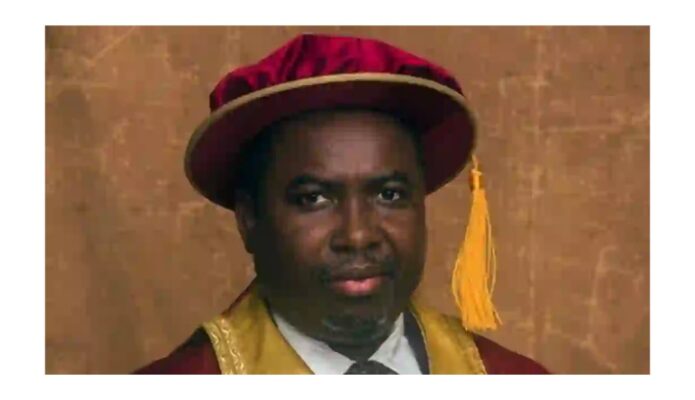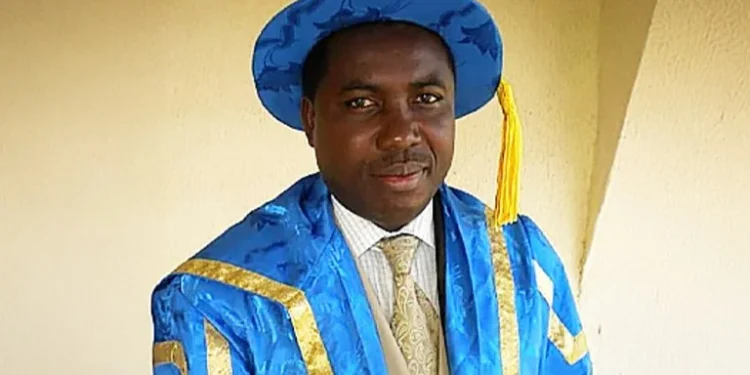President Bola Tinubu’s nomination of law professor Joash Ojo Amupitan as Nigeria’s new electoral chief is being framed as a masterstroke of non-partisanship. The label “apolitical,” carefully deployed by the presidency, is a potent but deeply cynical piece of political branding in a nation weary of electoral controversy.
While Professor Amupitan’s academic credentials are impeccable, his appointment is less a clean break from the past and more a high-stakes gambit that does little to address the foundational crisis of trust plaguing the Independent National Electoral Commission (INEC).
The real test is not the professor’s personal integrity, but whether any leader can operate independently within a system designed for political pressure.

The “Apolitical” Shield: A Strategic Move for 2027 Elections?
Let’s be clear: in Nigerian politics, no major appointment, especially not the head of INEC, is truly “apolitical.” This nomination is a strategic calculation. By selecting a respected scholar from Kogi state, Tinubu’s administration adeptly sidesteps the appearance of appointing a blatant party loyalist, while simultaneously balancing the nation’s complex geo-political equations.
However, this veneer of neutrality is precisely what makes the move so politically astute for the ruling APC. It is a preemptive strike against accusations of bias, designed to build a reservoir of public goodwill that the government can draw upon in the future.
The hope for the opposition is that Professor Amupitan’s expertise in electoral law reform will be his guiding light; the fear is that his mandate is merely to preside over a system whose ultimate outcomes are already predetermined by the powers that appointed him.
The Daunting INEC To-Do List for Professor Amupitan
Professor Amupitan’s illustrious career in public law and corporate governance means nothing if it does not translate into tangible, visible reform. His nomination comes at a moment of profound crisis for Nigeria’s electoral system, where calls for transparency and reliable technology have become a national chorus.
His first major test, the Anambra governorship election, will be a brutal baptism by fire. To succeed, he must immediately move beyond platitudes and execute a clear, multi-pronged strategy. He must publicly commit to making the INEC server an open book, allowing for real-time, cross-verifiable results that leave no room for the damaging delays and “glitches” of the past.
Furthermore, he must oversee a comprehensive audit and cleansing of the voter register, a document often accused of being bloated with ghosts and manipulations. This is the only path to restoring voter confidence in the Nigerian electoral process.
Why It Matters
The opposition’s plea for Professor Amupitan to prioritize public trust over political loyalty is the central challenge of his tenure. He must, from day one, demonstrate his independence by making INEC’s operations radically open to scrutiny from all political parties and civil society observers. This means not just using technology, but ensuring that the technology is trustworthy, its source code auditable, and its results instantly accessible.
If Professor Amupitan is the man of integrity his record suggests, he must wield his academic authority to build an electoral fortress around INEC, one that is impervious to the very political pressures that undoubtedly led to his own appointment. The future of Nigerian democracy depends on his willingness to break from the script he was hired to follow.

















